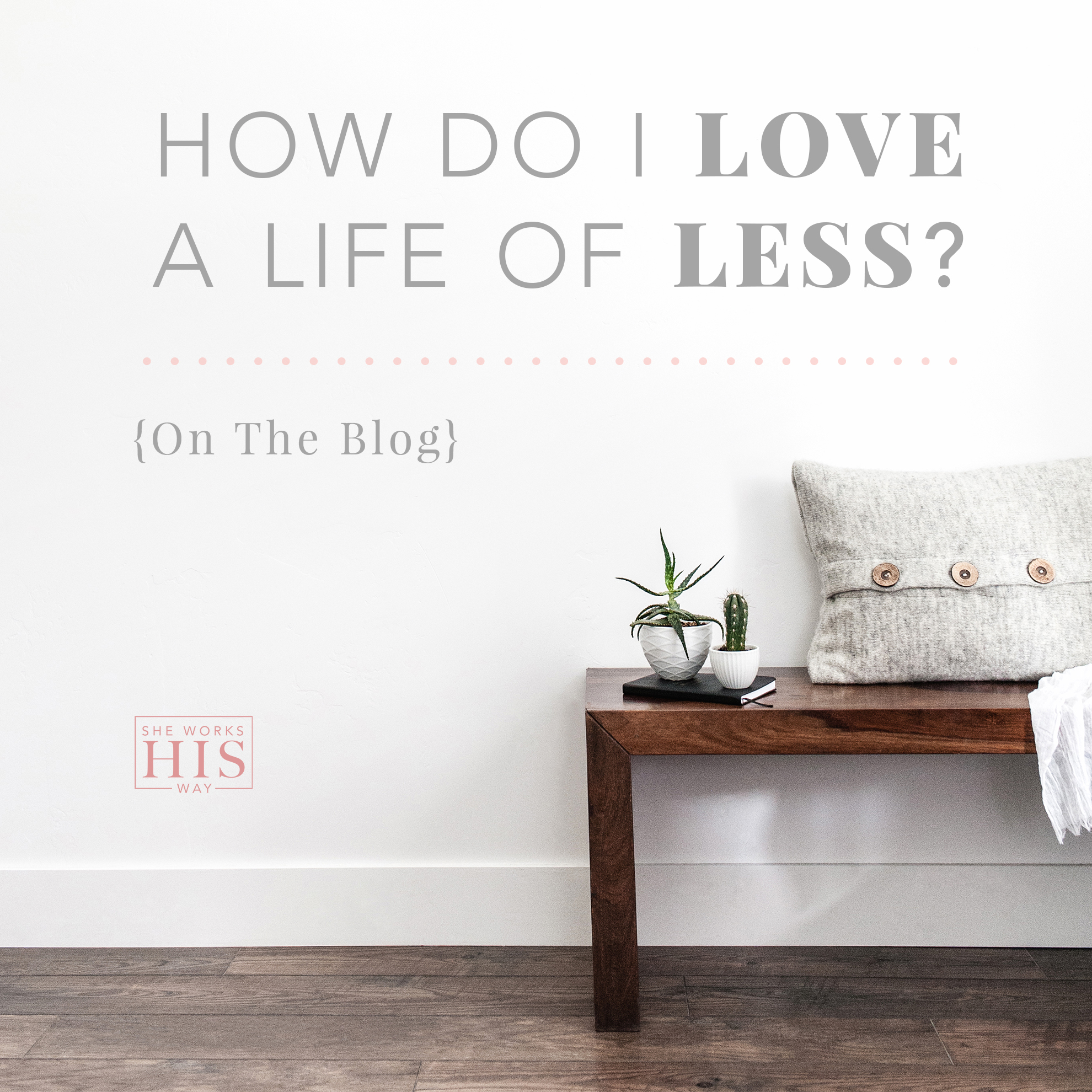Honestly, once you get to the actual having less part, it’s fairly simple. That’s the ironic thing about the topic of having less. Most people admit that they feel bogged down and anxious about all of their stuff. We recognize the direct link between the amount of stuff we have and the level of stress we deal with. Could it be that the things that bring us so much happiness initially are in fact the same things that trigger our stress later on? The answer to that is a simple “yes”, but the solution is more complicated than just decluttering.
Does this cycle sound familiar?
Step 1
We buy or accept new stuff and we love it. Getting new stuff is fun!
Step 2
We take the new stuff home and put it in a place. Furniture, clothes, decor, whatever it is, we are so excited to welcome it to our life. It instantly makes us feel better, happier, more content.
Step 3
We repeat step 1 and 2 over and over every time we have a desire to feel better, happier, or more content with our lives until we run out of places to put the new stuff and money to pay for the new stuff.
Step 4
We become anxious and irritable because we can’t get closet doors to close, park our cars in the garage, or keep our homes tidy. And the worst part is that we can’t for the life of us figure out how to keep up with ALL the maintenance and ALL the upkeep of ALL the stuff.
So we don’t just have to get rid of stuff, we have to stop the cycle of acquiring the stuff.
Living with less is the easy part. Desiring less is what we have to work on.
But we can’t work on it with only the tips and tools of the minimalist coaches and decluttering pros. Although there is value in what they have to teach us, they rarely address the root issue.
Guess what book does though? That’s right. The Bible.
1 Timothy 6:6-8 says this:
But godliness with contentment is great gain, for we brought nothing into the world, and we cannot take anything out of the world. But if we have food and clothing, with these we will be content.”
But godliness with contentment is great gain…
Godliness WITH contentment is great gain. Let’s talk context here. Paul was writing a letter to Timothy, his apprentice, warning him about false teachers. He explained that many of the false teachers were motivated to teach because they wanted to get paid. In other words, godliness wasn’t enough for them (not that they were godly.) But Paul tells Timothy, godliness + contentment is great gain. Paul knew how dangerous discontentment could be for us and he made it a point to warn Timothy.
…for we brought nothing into the world, and we cannot take anything out of the world.
Billy Graham once said “I never saw a U-Haul behind a hearse.” The goal isn’t to be morbid here, but can we be realistic? What’s the point of all the stuff? Some of it is necessary and some of it brings us joy, which is okay, but what about the rest of it?
There is a new show out on Netflix that sends a decluttering expert to the homes of some very overwhelmed families. The first thing she does is have them take each piece of clothing and put it into one pile. And wouldn’t you know that every single person in every episode is dumbfounded by the sheer size of the pile. Many actually expressed that they felt ashamed. When we don’t take inventory of what we have, it’s really hard to know when it’s too much. We came with nothing and we leave with nothing, but somehow in between the coming and going, we completely lose control. Don’t let yourself do that. Pay attention to what you have, be grateful, and steward it well.
But if we have food and clothing with these we will be content.
I’m learning more and more that contentment isn’t so much a feeling we experience as it is a resolution we make. Paul explains to Timothy that what we actually need in life is a very short list. Jesus + Food + Clothing should= contentment. That’s about as minimal as it gets. I’m not saying food and clothing is all wecan have butifit WAS all that we had, could we be content? We have to ask ourselves these tough questions.
So how will we love a life of less?
By resolving to be content, because we recognize that Jesus is more than enough.

